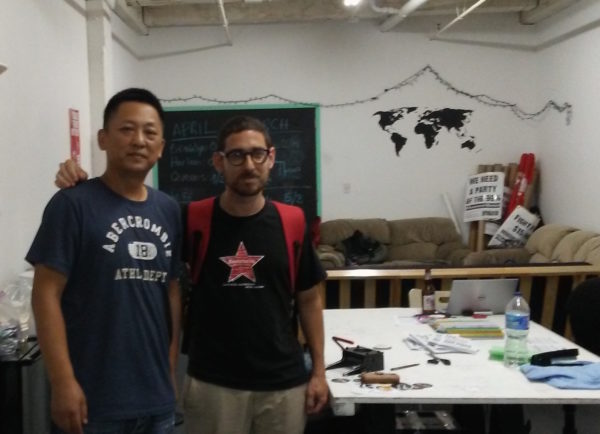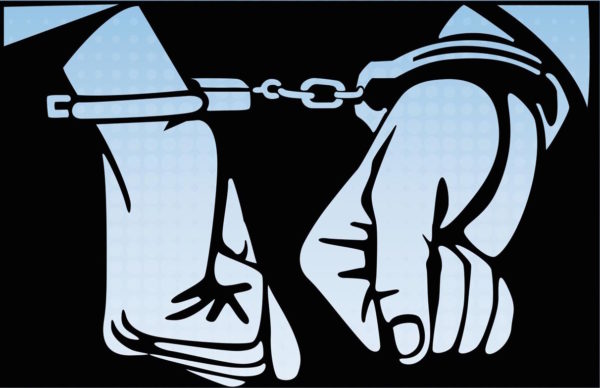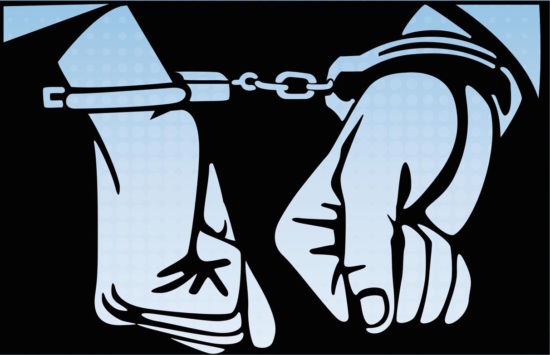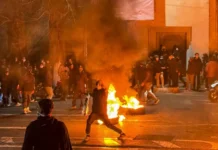Xu and his family are victims of China’s deepening police crackdown
chinaworker.info reporters
Hu Xufang is a 45-year-old former management consultant from Liaoning province. He is a member of the Committee for a Workers’ International (CWI) in China, where the organisation is banned. In April 2016, Xufang fled with his wife and six-year-old daughter to the United States. In Xi Jinping’s China more and more are falling victim to police repression.
“I was detained by the police in January 2015,” he told chinaworker.info. “They accused me of making anti-Communist statements. I was handcuffed to a radiator and beaten repeatedly for two days.”
Xufang’s wife obtained his release by paying off a senior policeman. Xufang was then dismissed from his job while the police harassment of him and his family continued. His father died in March last year and he is sure the intimidation by security forces played a part in this tragic turn of events.

Socialist magazine
Xufang has been a longstanding critic of the so-called Communist Party (CCP) dictatorship. As a school student he participated in the epic 1989 protests demanding an end to one-party rule. More recently, Xufang joined the CWI in China which is organised around the underground magazine ‘Socialist’ (Shehui Zhuyi Zhe), contributing articles and translations about the international workers’ struggle. The CWI/Socialist magazine campaigns for workers’ rights and especially the right to organise independent trade unions. It opposes the CCP dictatorship and stands for immediate and full democratic rights in China.
In China, all political activity that is not sanctioned by the state and conducted through its top-controlled structures is illegal. Members and sympathisers of the CWI organisation in China have faced persecution before – arrest, brutal interrogation methods, and continuous police surveillance. This was the case with Zhang Shujie, who was threatened with five to ten years in prison for “contact with a banned organisation” unless he agreed to turn informer for the police. Zhang Shujie fled China in 2011 with the assistance of CWI members in several countries.
In China today, state repression has become much more severe than even five years ago. The rise of Xi Jinping, recently crowned “the core leader” of the Chinese dictatorship by state-controlled media, coincides with the harshest crackdown for many years. In a report last year, Human Rights Watch said, “Repression of critics is the worst in a decade, and there appears to be no end in sight.”
Rights lawyers, labour activists, striking workers, feminists, even individuals who “spread rumours” on social media, have all been targeted. The regime’s methods – unlawful detention, forced confessions, show trials, and most recently also overseas abductions – are designed to spread terror and deter any who might think of challenging the regime’s undemocratic pro-billionaire policies.
Nationalism
State repression in the past couple of years has also increasingly focused on “anti-China foreign forces”, because Chinese nationalism has become the regime’s main political weapon as the economy falters and millions face wage cuts and rising joblessness. Increasingly those who fall foul of the dictatorship – including labour NGOs that educate workers on their legal rights – are accused of collaborating with “hostile foreign forces”. The purpose of this is clear: to misdirect public attention from the real problems – raw exploitation and the anti-worker policies of the regime – and instead blame a ‘foreign conspiracy’.
Socialist Alternative, the sympathisers of the CWI in the US, actively support Hu Xufang’s plea for asylum. Socialists and those fighting for democracy internationally will see his case as another wake up call over worsening repression in China and the need to defend its victims. Above all, this means stepping up the struggle for international socialism.





